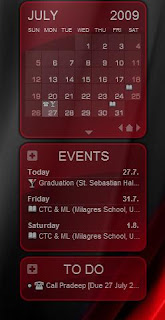He said, :"Quality journalism is not cheap,..The digital revolution has opened many new and inexpensive distribution channels but it has not made content free. We intend to charge for all our news websites."
You should read people's reaction to that. Many reacted as though, it is not a big deal and they consider
News Corps news sites as crap. Most of them said they don't care as they are not going to pay to read his sites anyway. News Analysers sounded very disappointed that a person like Murdoch took such a naive decision. Stories ran on blogs and technology review sites on how this decision is all about News Corps digging its own grave. Journalists are wondering how and why
this is too risky for nothing. One reviewer even went to the extent of saying
only Apple can save newspapers.
Is Murdoch serious about what he said or was he just testing the waters? True, his business ventures reported a net loss of $ 3.4 Billion this fiscal year. True, recession is at its best and on-line advertisement revenue is dipping. True, Wall Street Journal, a paid news site from Murdoch is doing relatively well and has users paying to read news. But, is he serious? Or was he, as I said, just testing the waters? Or, was it just a sudden outburst of frustration? May be, it was all the three put together.
Why do I say that? I think Murdoch is missing a key point here. On-line content is just a tool. I don't believe that Internet is all about Information. Internet is about advertisements. Certain products are just tools to sell certain other products. Why do Google let me search for free? Why does Google or Wordpress permit me to upload content on my blog for free? Why do social communities allow me in for free? Why are there many sites that give me many of their services for free? Why are open source applications free? Why is the news free, after all? I think these things are free because they want me to stick around as long as possible. You stick around so that you buy something, sooner or later.
This is not a new business model. In India we have temples and churches organizing festivals around their theme of worship. They spend a lot of money, organizing a fare, staging plays or other performances by professional artists etc. These religious festivals last for five to ten days. The plays or other performances go well into midnights. You don't pay anything to watch a play during the festival. Why do they do it for free? Because, they know that people who come to the festival will visit the temple or church to pray. But the few coins they offer when they pray is not the target! People come to these festivals to set up stalls that sell from glass bangles to kitchenware. They pay lovely loads of cash to people who run the temple or church as rent for these five to ten days. In fact, there are groups of people in India, who travel from one festival spot to another and make a decent living!
To me, Internet sounds like a temple or church festival. And people who make content available or provide spaces for people to meet are like the Temple or Church Committee Members. They run the show. Sites like Murdoch's or Google's or Facebook's or Twitter's are these plays or performances staged during this Big Bang Festival called Internet. People come to the festival, because these performances are for free. And as they come, some of them, sooner or later most of them, will buy from the people who set up stalls in Google's or Murdoch's or Facebook's or Twitter's premises.
What happens if Murdoch makes his sites 'pay-per-click' as he says? May be there are going to be people who are willing to pay like there are people to read Wall Street Journal. But imagine the number of people who would have read Wall Street Journal, if it was available for free?
And if Murdoch is going to hide his content behind the '
paywalls', what about those people who hit the search engines for anything and everything? Google, Bing and Yahoo! If they won't have traces of Murdoch's Sites, won't he disappear from the minds of people gradually? This is why I said, Murdoch's announcement is happy news to Bloggers.
I am sure he will not hide all his content behind the paywalls. He will float enough summary of news stories around to make sure that he is on search engines. May be he will enter into deals with Search Engines to make sure that he is there, when people search. But even then,, it is happy news for bloggers!
Experts say that about 90% of his traffic will die because of this decision. Let Murdoch take his ten percent! Where will the rest go? The rest will trun to sites that make content available for free. I think, if Murdoch will implement his decision, there is going to be an increase in traffic to blogs we have around. Is this not happy news bloggers?























